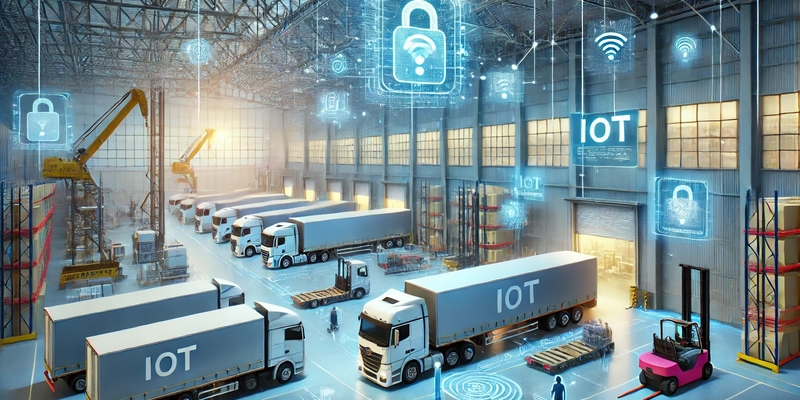
The logistics industry is transforming, leaving inefficiency and guesswork behind. Thanks to advancements like automation, IoT, and blockchain, the supply chain is smarter, faster, and more transparent than ever before. These technologies aren’t just futuristic buzzwords—they’re actively shaping how goods move from production to delivery, redefining what’s possible in logistics.
Here’s how these innovations are setting new standards for a more reliable and efficient supply chain.
1. Automation and AI: Streamlining Operations
Automation and Artificial Intelligence (AI) are the backbone of modern logistics, reducing manual errors and accelerating processes. These tools are redefining the roles of human workers, freeing them up for more complex problem-solving tasks.
Key Applications
-
Predictive Analytics: AI analyzes data to forecast demand and optimize inventory, ensuring the right products are in the right place at the right time.
-
Warehouse Robots: Machines handle tasks like picking and packing with unmatched speed and accuracy
-
Autonomous Vehicles: Self-driving trucks and drones are minimizing delays by optimizing routes and cutting down on idle time.
Real-World Example
Fleet management has become smarter and more efficient. IoT-enabled vehicle health monitoring ensures maintenance is proactive rather than reactive, preventing costly breakdowns. For added reliability, fleets often include pre-maintained vehicles, reducing risks in operations.
2. IoT: Connecting Every Link in the Chain
The Internet of Things (IoT) is revolutionizing logistics by providing real-time visibility and control over supply chain operations. Every asset, from cargo to vehicles, is connected and monitored, ensuring swift action when issues arise.
Benefits of IoT in Logistics
- Real-Time Tracking: Follow shipments from the warehouse to delivery, addressing delays or mishaps immediately.
- Enhanced Asset Management: Sensors monitor vehicle conditions and cargo environments, such as temperature and humidity for sensitive goods.
- Compliance and Longevity: IoT data ensures adherence to quality standards and prolongs equipment life through timely maintenance.
Practical Impact
Take pharmaceutical logistics as an example. Sensors in trucks ensure medications are transported under precise conditions, reducing spoilage and ensuring compliance with stringent regulations.
IoT’s ability to provide actionable insights transforms logistics into a responsive, adaptive ecosystem that keeps pace with customer demands.
3. Blockchain: Building Trust Through Transparency
Blockchain technology is tackling some of logistics’ biggest challenges: fraud, traceability, and inefficiencies. Its decentralized, tamper-proof ledger provides a clear, verifiable record of every transaction and movement in the supply chain.
What Blockchain Brings to Logistics
- Enhanced Traceability: Monitor the origin, journey, and handling of goods, crucial for industries like food and pharmaceuticals.
- Smart Contracts: Automate agreements—like payments and customs clearances—based on pre-set conditions, speeding up processes.
- Fraud Prevention: A secure, immutable ledger makes it nearly impossible for unauthorized changes to occur.
Real-World Example
If a food product recall is necessary, blockchain pinpoints the affected batches instantly, saving time and reducing consumer risk. This level of transparency builds trust with customers and partners alike.
The Future of Logistics is Here
The integration of automation, IoT, and blockchain is not just improving logistics; it’s setting a new standard for efficiency and reliability. Whether it’s predictive AI tools, IoT-enabled asset tracking, or blockchain’s foolproof security, these technologies are reshaping the way goods move across the globe.
To stay ahead in this fast-evolving landscape, it’s time to embrace these advancements. Modernize your supply chain today and position your business for a smarter, more connected future.
